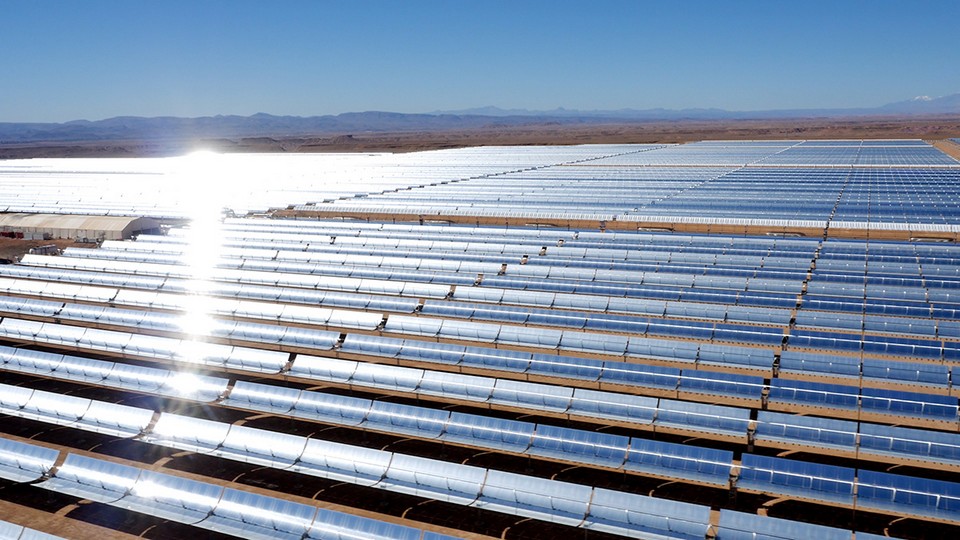Filter by
304 results found
News
The third Annual Meeting of the Asian Infrastructure Investment Bank (AIIB) was held in Mumbai on 25-26 June 2018, and the Global Infrastructure Hub was asked to join one of the panels organised by India, as the host nation.
Read time: 1 minute
Published
18 Jul 2018
View news


News
The Africa Infrastructure Fellowship Program (AIFP)—a joint initiative between the Global Infrastructure Hub (a G20 initiative), private investment firm Meridiam, and the World Economic Forum (WEF)— has been formally announced by Mr Jean-Baptiste Lemoyne, the Secretary of State attached to the Minister for Europe and Foreign Affairs.
Read time: 3 minutes
Published
12 Jul 2018
View news


News
On 3-4 July 2018 the GI Hub gave a series of presentations at the International PPP Finance Summit, held in London.
Read time: 2 minutes
Published
06 Jul 2018
View news


Published
13 Jun 2018
View news


Published
18 May 2018
View news


News
The World Economic Forum, the Global Infrastructure Hub (GI Hub) and Meridiam on Wednesday launched a new partnership to help governments across Africa build infrastructure procurement capabilities within their civil services.
Read time: 1 minute
Published
08 Apr 2018
View news


News
Visit from a Public Sector Delegation of Zhejiang Province of China to the Global Infrastructure Hub
Read time: 1 minute
Published
17 Jul 2018
View news


News
Read time: 1 minute
Published
10 Jul 2018
View news


News
The Global Infrastructure Hub, a G20 initiative, has today published two reports that reveal an urgent need for infrastructure investment in 10 Compact with Africa[1] countries, and highlight the reforms required to encourage greater investment.
Read time: 3 minutes
Published
03 Jul 2018
View news


News
The GI Hub was asked by the Asia Pacific Investors Cooperation organisation (APIC) to give a presentation on the state of ASEAN infrastructure markets at the APIC 2018 Summit in Tokyo on 21-22 June 2018.
Read time: 1 minute
Published
02 Jun 2018
View news


News
Welcome to the first edition in a series of updates that the GI Hub will provide in advance of each G20 Infrastructure Working Group (IWG) meeting. As committed to in the GI Hub’s Strategic Plan 2019-22, and in response to requests made by members of the IWG, these updates will provide both a description of activities undertaken since the last IWG meeting and a preview of upcoming initiatives. For each of the GI Hub products discussed in the update, we will identify the relationship between the product and the workstreams in the IWG Terms of Reference. We hope that you will find these updates informative and, of course, we welcome any questions or feedback.
Read time: 7 minutes
Published
05 May 2018
View news


News
An industry event about the need to attract private capital and develop infrastructure as a standalone asset class is nothing new. However, the G20 Infrastructure Financing Seminar that took place in London last week was unique in that it had the most wide-ranging and intense interactions between governments and the private sector that I have seen to-date.
Read time: 4 minutes
Published
26 Feb 2018
View news


News
On 12 July 2018 the GI Hub’s COO, Mark Moseley, joined a webinar panel on blockchain and its applications for infrastructure, hosted by the International Project Finance Association (IPFA). Blockchain is the technology that underpins Bitcoin and other similar ‘cryptoassets’, such as Ethereum and Ripple. Its potential, and the recent volatility of cryptoassets, has made the technology one of the most hyped and misunderstood technologies in the market.
Read time: 2 minutes
Published
13 Jul 2018
View news


News
The GI Hub was asked to join a panel discussion on Risk Mitigation in Infrastructure Financing. Mark Moseley, the GI Hub’s Chief Operating Officer, identified the risks which typically arise during major infrastructure projects, including land acquisition risks, demand risks, foreign exchange risks and political risks.
Read time: 2 minutes
Published
09 Jul 2018
View news


News
A new report released today by the Global Infrastructure Hub, a G20 initiative, has revealed an infrastructure investment gap of US$1 trillion in 10 Compact with Africa countries over the next 22 years.
Read time: 3 minutes
Published
03 Jul 2018
View news


Published
22 May 2018
View news


News
For the second year the conference gathered Brazilians and foreign professionals from the infrastructure public and private sector. The conference focused on the role of privatisation of infrastructure assets, PPPs and Concessions for the next wave of Brazilian infrastructure projects as part of the 20 year infrastructure program 2018 to 2038.
Read time: 1 minute
Published
20 Apr 2018
View news


News
While 2017 was an eventful year for the Global Infrastructure Hub (GI Hub), 2018 is shaping up to be even busier.
Read time: 5 minutes
Published
06 Feb 2018
View news






















